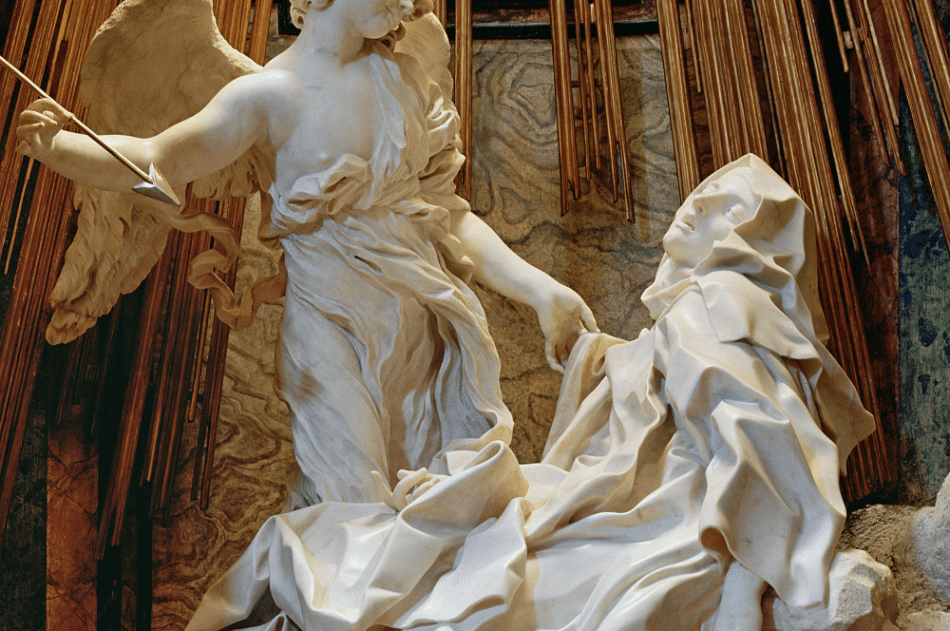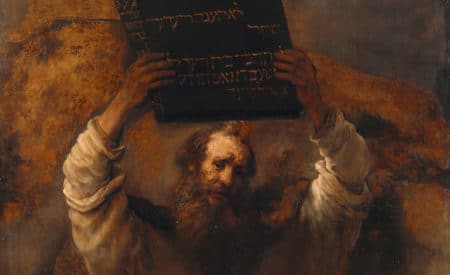I’m no longer a seeker.
I’ve been sought.
I just realized that this week marks exactly 20 years since I defended my master’s thesis. Dang, time flies. But I remember as if it was yesterday, because my committee chair opened with a question that immediately caught me off guard.
“How would you define mystic?” he asked.
My entire reading list comprised poets writing from mystical traditions both western and eastern, and I could wax at length about ghazals and John Donne, but I somehow read over 50 mystical books without defining what “mystic” was.
I could feel my mouth dry out. I scrambled for a definition and, stumped, blurted something like “people who… um… experience mystery? It’s difficult to explain…” First question out of the gate and I felt like a flub.
Turns out I wasn’t that far off.
There are still many Protestant Christians who think mystic = “ancient cypher goddess religion” aka “New Age,” and probably just as many atheists who think “mystic” = “Joseph Campbell woo.” I forget sometimes that people think those things, but since I’ve had 20 years to refine my awkward first stab at it, here’s my personal definition:
Mystic: one who enjoys the experience of God and unseen realities in ways that supersede intellectual reasoning or comprehension.

“Mystic” derives from the word “mystery,” which originates in the Greek word mysterion—a word that apostle Paul mentions 20 times in the New Testament (the other 8 times by John and Luke). Until the late middle ages, “mysticism” and “mystic” were terms confined to Christianity and only later evolved to refer to a wide range of spiritual practices and beliefs. Mysterion simply means secret.
A mystic is someone who enjoys mystery! I’m guessing that includes a big bunch of us.
Unlike the mystery religions in Ancient Greece (gnostic religions and sects that practiced rituals to gain secret knowledge), the New Testament writers and much of the early church proclaimed a mystery that had been revealed, a simple but profound mystery that required no special guru, teacher, ascension, knowledge or ritual:
“That great mystery that was hidden from all ages and generations is now revealed clearly to his saints. They proclaim the riches of the beauty of this secret among you—which is simply this: Christ in you!—the hope of glory.”
Colossians 1:26-27
This doesn’t mean that Christian mystics haven’t mucked that up throughout the last two millennia.
Whether they be Catholic or charismatic, many mystics often interpret their wonderful visions and ecstatic experiences through the lens of gnostic-influenced doctrine. Even today it’s common to hear about “ascending” into special realms or fasting and “pressing in” to a secret place. The special keys, the five steps, the 9 gates, the endless fasting and penance to get there—on and on it goes. Even silence becomes something to achieve, rather than something that is just… there… waiting to be enjoyed.
What if someone told you it was easier than that? Who hasn’t had chills when listening to Mendel’s Hallelujah? We’ve all had mystical experiences—whether it’s the warmth that floods you while singing a favorite hymn or a full-blown ecstasy that overtakes you in the middle of the night.
The mystery is so simple that a child can know it. It is the enjoyment of something—someone—we already have inside of us. This is one of the reasons the gospel—the good news—is so pure and delightful and frequently so scandalizing. There is no wrestling or special knowledge needed to “get there.”
I have a natural bent towards quietness, wonder and the love of the unexplainable. Because of that, for all of my adult life I’ve been drawn to both more contemplative traditions in the church mystics and simultaneously the wild and wacky expressions of the charismatic church. But in both these “sides” is often found a love of “being spiritual” to the point where one can strive and drive against their natural pace of discovery. I know this very well. That’s why I like to be lazy about prayer, and I use that word on purpose. The “mystical life” is meant to be natural, it’s meant to be a joy-filled discovery of Who is already revealed and revealing on the inside of me, of you.
I love reading the mystics, and reading about them. I always have. They “speak my language.” But all mystical practices started with someone who discovered a way to name his or her own prayer personality and teach it to others. Yes, we can benefit from that, but never let any teacher, no matter how supernatural or enlightened they may seem, ruin your natural wonder.
The apostles, especially Paul, were crystal clear that union with the divine was not a result of special practices, elevated “anointedness,” illuminated knowledge or personal holiness, all of which is just priestcraft:
Don’t let anyone who is into pious self-effacement or talk of angelic visions make you feel like an “I am not”. This sort of person goes into a lot of detail about the things they have seen in their supernatural escapades, but they are completely puffed up and proud of these things. It’s the result of an unspiritual mentality, thinking one has to “become” spiritual or “attain” the spiritual.
(Colossians 2:18, my paraphrase)
Jesus told his followers that heaven (the dwelling of God) is not over “there” or up there somewhere. In fact, he declared the end of over-there-ness: “No longer will people say, ‘Look, the kingdom is over there!’ or ‘Look, it’s here!” No, the kingdom is within and among you!”
Here’s a healthy meditation:
What does it mean to have the mystery—the entire revealed mystery—right within you and not “up there” or “over there”?
Top photo credit: Ecstasy of Saint Teresa, from original photo at Wikimedia Commons


